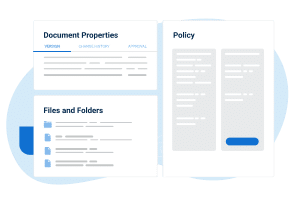From all advance drafts of the 2015 version of ISO 9001, it appears that the new standard will not include requirements for a management rep, but is it a good idea to just eliminate this position? The management representative has been part of the ISO 9001 requirements since the 2000 version came out, and since then this position has played a crucial role in the management of the quality management system (QMS). It is hard to believe that the creators of the ISO 9001 standard have now decided that this role was a waste of time; rather, I suspect that they have decided that the role is so commonly ingrained that it does not need to have requirements in the standard any longer.
So, the question remains: what jobs does the management rep have in the QMS that are worth keeping? Since the goal of implementing the QMS is to improve, and all companies want to remove waste from their processes, this is a valid question to ask. I would argue that the following activities by the management rep are valuable and worthwhile, even if the updated standard does not require them.
Process Maintenance and Performance Reporting
I discuss in the post on What is the job of the quality management representative about the need for someone to oversee the maintenance of processes and report on the performance of processes to senior management. The process owners are experts at how their processes function, but they can sometimes be blind to the problems caused by the poor interaction of processes. It is possible that the members of an audit department could look at process interactions and make suggestions, but it is often beneficial to have one person with the responsibility of making decisions.
Also, while it is possible to have several process owners responsible for presenting data, it is often efficient to have one person responsible for this presentation so that the data is consistent. For instance, your purchasing process owner can report on how their process is performing, and your incoming goods receipt and inspection process owner can report on how their process is performing, but these two process reports may be inconsistent due to the use of different data. If the purchasing department is reporting on how fast the suppliers deliver (on-time delivery), but the incoming goods receipt process is hampered by consistently incorrect delivery paperwork, this may not be obvious without one common person reviewing the data for presentation.
By being consistent and easy to compare, the data then becomes more valuable for making decisions and action for improvement. When one person is analyzing the data in a consistent way, improvement actions can be seen more clearly.
Liaison with external parties
While this is only a note in the ISO 9001 requirements, it can be one of the most important roles for the quality management rep to play. Certification bodies, customers, and regulatory bodies will still want one person in charge to contact with regards to the quality management system, and up until now this person was the management representative.
As I discussed in Additional responsibilities of quality management representatives, this important role can give all external parties some comfort. When someone wants to complain, they will be much more satisfied if there is one person who is easy to contact, rather than if they are sent around from person to person to try to resolve their issue. One quality management rep can mean the difference between a quickly resolved problem that satisfies the customer, and an angry customer who feels their needs are not understood.
The right person will make the role useful and efficient
If you have the right person in the role of quality management representative, you will see the benefits as discussed in Choosing the best person for the job of quality management representative. This person will help build your QMS on improvement, and guide your company toward efficiency in processes. The ISO 9001 requirements are not about adding unnecessary expense to your QMS, but neither are they there to eliminate a good thing. If you have a good management rep in place, then keep them there. The improvements you receive will make it worthwhile.
To comply with all ISO 9001 requirements, use this helpful ISO 9001 Premium Documentation Toolkit that provides all QMS documents.

 Mark Hammar
Mark Hammar 



